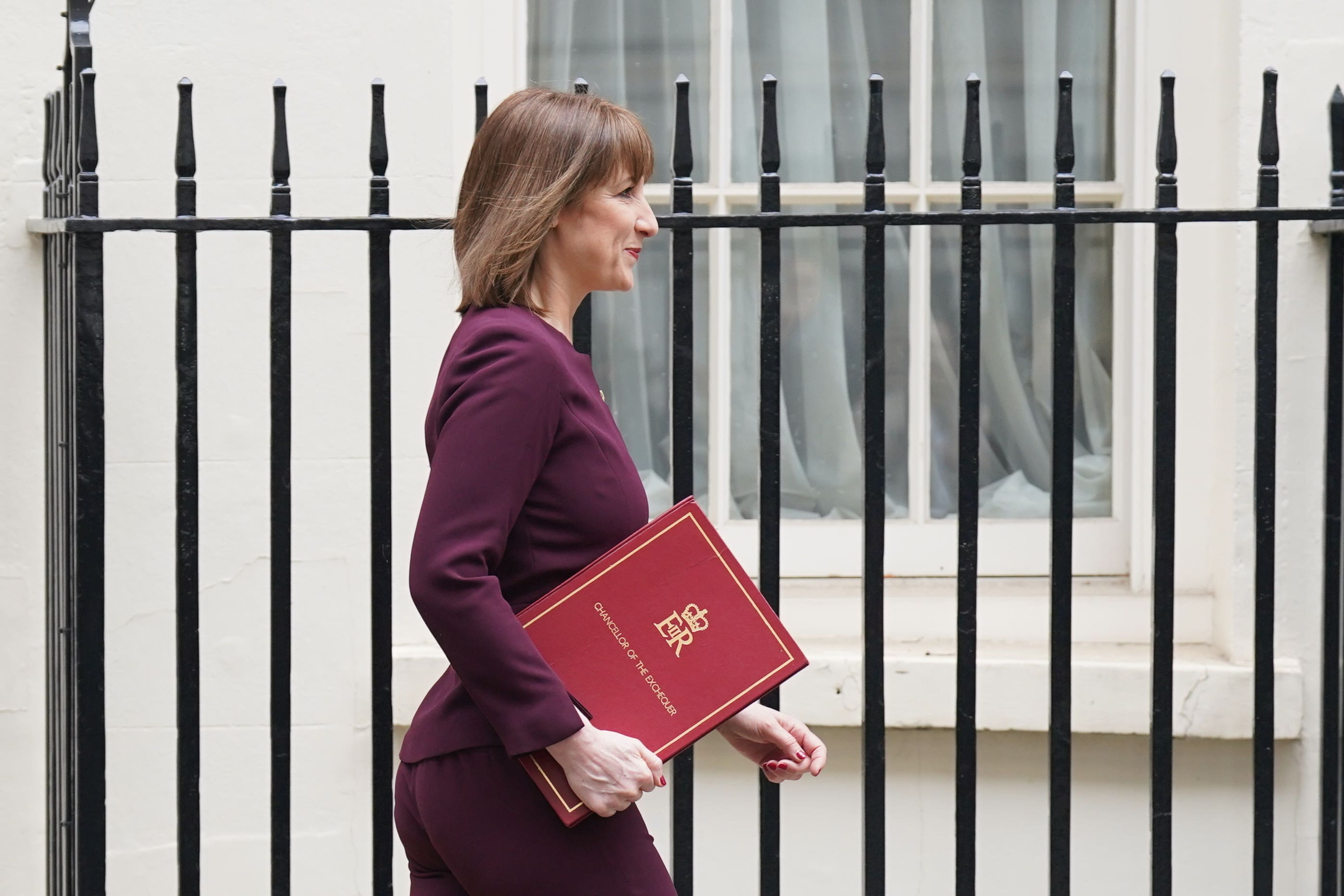No matter what Rachel Reeves says, Labour is delivering austerity 2.0
Labour faces two major battles after the chancellor’s spring statement, writes Andrew Grice – keeping the UK economy on track while facing rebellion from MPs and the public

In her spring statement, Rachel Reeves played a bad hand as well as anyone could have. She pinned the blame for a rethink only four months after her Budget on "increased global uncertainty" and “a world that is changing before our eyes”. That is code for Donald Trump’s tariffs and his forcing of Europe to spend more on defence.
Yet the chancellor will not entirely erase the impression that her bigger-than-planned update was caused in part by her decision last October to impose a £25bn tax hit on business, which has surely contributed to the UK’s anaemic growth.
Reeves used to attack Tory austerity as a "failed experiment", and in her Mais lecture a year ago called it a "major failing" which inflicted "severe damage to our social fabric and to our public services". Now the tables have turned, and the Tories are accusing her of reviving austerity. A bit cheeky given their ideological crusade to shrink the state, but many Labour MPs privately agree.
The backbench revolt against the cuts to sickness and disability benefits will be fuelled by today's impact assessment showing more than 3 million families will lose an average of £1,720 a year, and an extra 250,000 people will be pushed into relative poverty by 2029-30, including 50,000 children.
Nor was the government’s case helped by Reeves’ announcement of a further £500m squeeze on universal credit. This came after the Office for Budget Responsibility (OBR) fiscal watchdog said it would count only £3.4bn of last week’s £5bn welfare savings in the public finances.
Technically, the chancellor is right to say she is not repeating the austerity of George Osborne in the 2010-15 Con-Lib coalition. Her cuts are smaller and at a slower pace and come on top of a higher base after the £70bn uplift in public spending in last October’s Budget. But in a government-wide spending review this June, she will squeeze the same "non-protected" services that suffered under Osborne, such as the courts, prisons and local government. The police and education will not be immune. So the Reeves cuts will feel like austerity.
Ministers know this and are fighting to protect their departments. It matters less what they feel. But it does matter what the public thinks, and to them, it will definitely feel like austerity 2.0. That is a huge problem for Labour because it is the opposite of the "change" the party promised at last year's election.
Many economists believe Reeves did not really need to announce today’s short-term measures in response to a long-range forecast by the OBR that she will not meet her fiscal rules in four years. That will almost certainly prove inaccurate in a very uncertain world. The OBR’s word is taken as gospel by this government, and yet its record on forecasts is patchy. Since it was set up by Osborne in 2010, the average revision to its borrowing forecast for the fifth year is around 0.5 per cent of GDP, or about £15bn.

So Reeves could have waited until her Budget this autumn to see if the economic landscape had got better – or worse. If it worsens, she will need another correction. With the global economy likely to be hit by Trump's tariffs, and the UK unlikely to escape the fallout even if it secures a carve-out from most US tariffs, things are more likely to get worse than better.
“We will either have to change the fiscal rules or raise taxes in the autumn,” one Labour MP told me. After Reeves confirmed her rules are “non-negotiable” today, the big debate between now and the Budget will be on whether and how to raise taxes, as I predicted last week.
That prospect will be heightened by Reeves’ decision to restore rather than increase her £9.9bn of headroom against her rules – small by historic standards – which could easily be wiped out again by events beyond the government’s control.
Some Starmer allies and many Labour MPs now worry that the OBR tail is wagging the government dog. But Reeves judged she had to take corrective action now. In some ways, she is paying the price for putting the OBR on a pedestal. In opposition, this suited her – both to help Labour win economic credibility and rub salt in Tory wounds over Liz Truss’s mini-Budget when she sidelined the OBR.
In fact, Reeves’ immediate action owes more to the financial markets. They are watching her like a hawk and are still waiting to be convinced she is a fiscal hawk. The chancellor could not afford a repeat of the bond market wobble in January, which (temporarily) forced up government borrowing costs.
Reeves can just about claim there is evidence Labour’s “plan for change” is working: while the OBR halved its growth forecast for this year to 1 per cent, it raised it for future years. The chancellor grabbed with both hands the OBR’s nugget that the UK could see 1.3 million homes built in five years – only slightly below the government’s 1.5 million target.
Even Reeves' allies admit she is gambling on higher growth, and many Labour MPs fret privately that if it doesn’t come, they will lose their seats at the next election. “It’s a high-wire act,” one ally whispered.






Join our commenting forum
Join thought-provoking conversations, follow other Independent readers and see their replies
Comments